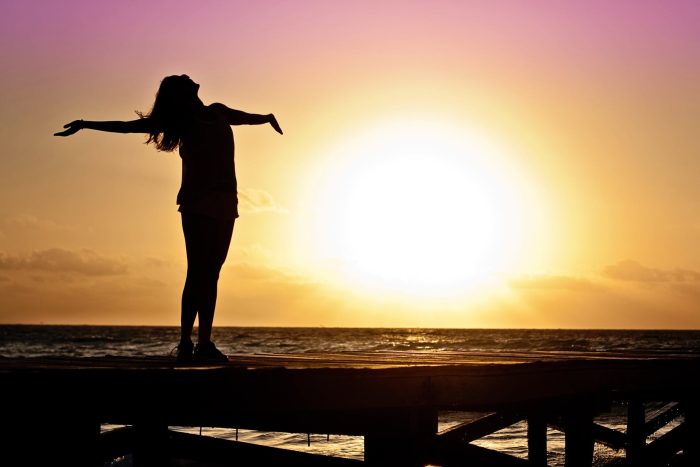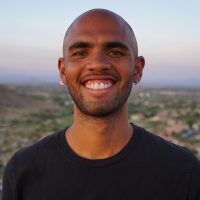Freedom is an internal state.
It’s natural for us to look to the outside world and criticize where our liberties feel constrained. I believe this to be healthy and something that is necessary for us to create better communities. Where people are heard, seen, felt, and therefore loved.
However, I do not believe that external means can make us less free.
In the last two years of pandemic and uproar, we have seen many ways in which the freedoms we had before have been stripped back. Quarantines, travel bans, traveling with worries of regulations, documents, and various health protocols, going into public without having to wear a mask, and limited gatherings. Before the pandemic, we didn’t have to think twice about these things.
But do they make us less free?
A disclaimer here before we go deeper. I’m not against any of these measures. I intend to point out how the “freedoms” we had one day could disappear the next. The pandemic is a perfect and relevant example to use. This is all to ask further questions…
If freedoms are taken away, were they ever freedoms, to begin with? Can freedom be given or taken?
The second disclaimer is that this does not minimize the suffering of people around the world who have had their human rights taken from them. This is where I’d like to make a differentiation. I believe human rights and freedom to be separate, but related, topics. Freedom is the context in which human rights emerge.
What is freedom?
The working definition we will use for this essay is the innate capacity to choose how one perceives and responds to their environment.
Innate, meaning a birthright for all, something that cannot be given or taken. Choose, meaning freedom is a faculty of the mind. Perception, meaning freedom can be colored by a viewpoint of the mind. Respond, meaning expressions or actions. Environment, meaning the space the individual inhabits.
Human rights, on the other hand, are “the entitled rights to life and liberty, freedom from slavery and torture, freedom of opinion and expression, the right to education and work, the right to adequate standards of living, physical and mental health” according to the UN.
Freedom is a state of being, whereas human rights offer standards of living. So, the premise here is that people living in unjust circumstances can still be free.
Maybe you think this is a naïve statement. I had the slightest thought that it was when I wrote this, but I believe it to be true. Especially if you refer back to the definition of freedom that we are working with here.
It takes the will of the human being to be free.
This is exemplified in people like Holocaust survivors Elie Wiesel and Viktor Frankl, who went through genocide but remained free.
Elie Wiesel wrote, ¨even in a climate of oppression, men are capable of inventing their freedom, of creating their ideal of sovereignty. What if they are a minority? Even if only one free individual is left, he is proof that the dictator is powerless against freedom.¨
Viktor Frankl stated, ¨Everything can be taken from a man but one thing: the last of human freedoms — to choose one’s attitude in any given set of circumstances, to choose one’s way.¨
I think we are widely confused about freedom. We often conflate it with human rights. This makes us feel that we are reliant on an external circumstance to uphold what has been and always will be a part of us. Then, we have someone or something to blame for our feeling of constraint.
What if we took responsibility for our freedom regardless of our situation, though? We would then be required to create space within ourselves when we felt constrained by the world. We would have to become available to life, living outside our stories of what should be. We would have to become creative in designing the structures by which we live. Moreover, we would have to ask why we have an inherent motivation to be free and where it comes from.
Why freedom?
We spend a lot of time attempting to get a taste of freedom and for some reason, we know it’s our right to be so. That’s interesting. We know it’s our right to be free. This means that freedom is somehow wired in us. And that would mean that freedom is an intrinsic part of life.
Our evolution sits in the dance between freedom and structure. Freedom is a necessary element in the dance because it’s innovative. It breaks down structures that are outdated and puts fresh energy and perspective into the system. This is essential in creating a more intelligent system.
So, this impulse for freedom is necessary to propel the human species forward. I feel that if we come at it from this angle it can help us understand why it’s so important for us to take responsibility for our freedom. More than that, it helps us understand that our life is a mission to be free, not for ourselves but for the generations to come.
Why? Because the freedom we actualize in ourselves ends up materializing in the structures in which our children live. In other words, the rights we have today are representations of the level of freedom our ancestors attained within themselves. Think about that, remembering human rights emerge from internal freedom. We are living proof of the potential our ancestors felt deeply within themselves.
Now, the world isn’t perfect and there are certainly many elements of it that wouldn’t be considered heaven by our ancestors. But think about the world 1,000, 500, or even 100 years ago. I think we would all agree that today the relative standard of living is much better and more just. Not everywhere, though. So, this is where our work comes in. Again, the level of freedom we actualize collectively will majorly impact the way people live 100 years from now.
This I believe is the answer to why we are obsessed with freedom. It’s a cultural impulse.
And if that doesn’t excite you, knowing that freedom is an inherent gift only you can acknowledge in yourself, must. To know that the government, the republicans or democrats, Covid, Omicron, and all other variants to come, vaxxers, anti-vaxxers, the flight attendant who incessantly screams at you to pull your mask up, the white supremacists, the sexists, the feminists, (all the -ists’), your pets, your family and loved ones, your co-workers/co-creators, and your financial situation can never touch your freedom. To know that you have the capacity to choose how you want to perceive and respond to your environment must be compelling to you.
Isn’t that relaxing? Not to mention, empowering?
I believe the more we touch this liberty within ourselves and work to a collective embodied knowledge of such, we will see our world transform into the harmonious environment it has the potential to be.
Taking radical responsibility for your freedom is a revolutionary act. It will inspire and uplift the people around you to do the same. It will create harmonious communities that will ripple out into the collective. Most importantly, it will create ¨a world worthy of its children.¨
32


 Share on bsky
Share on bsky





Read 0 comments and reply